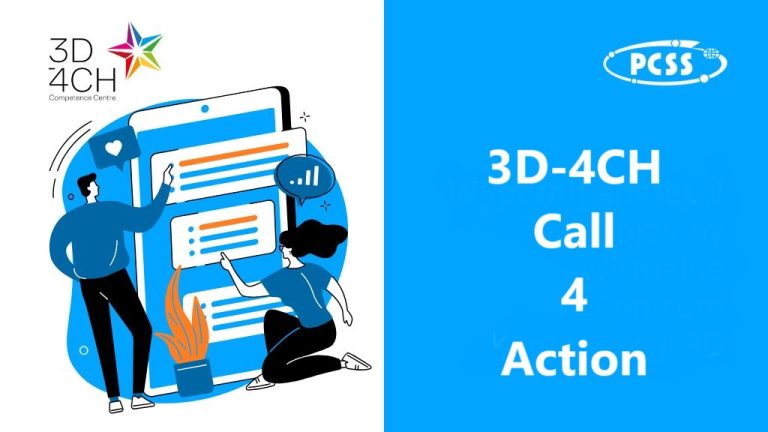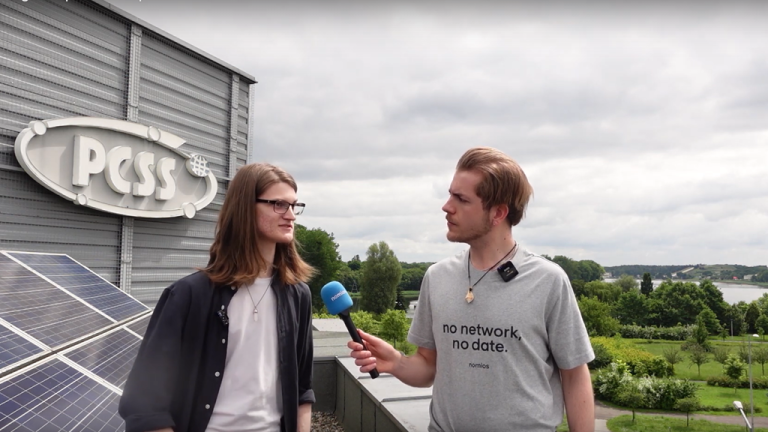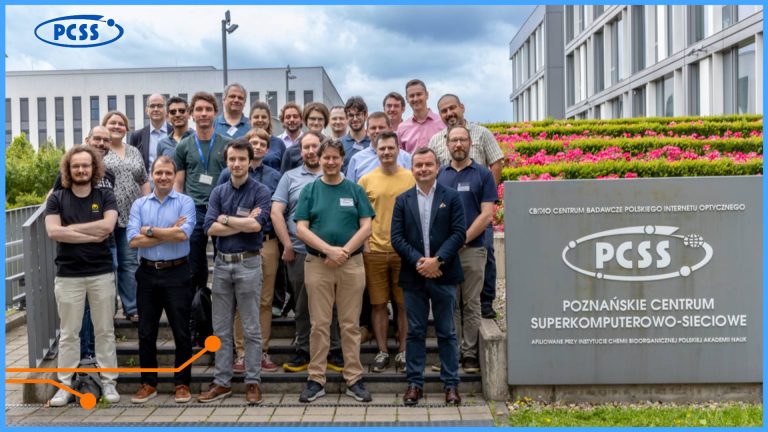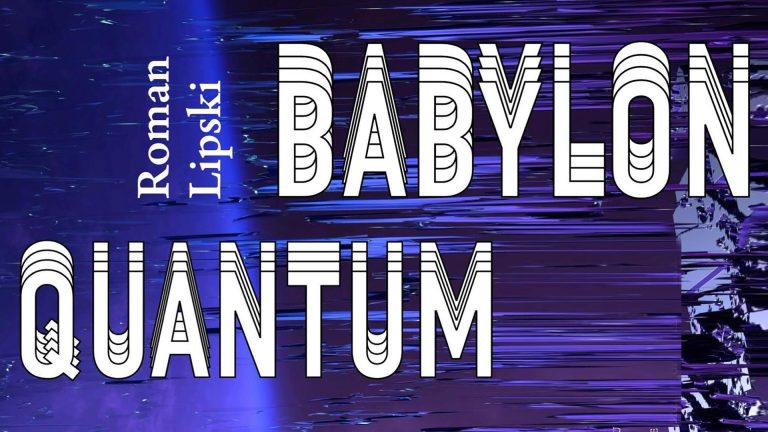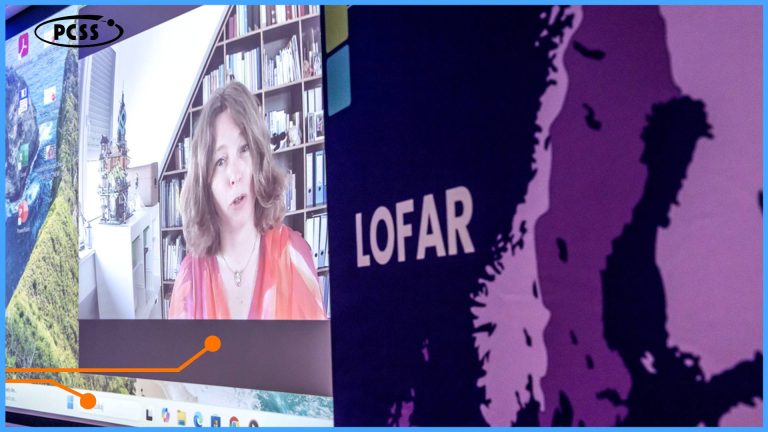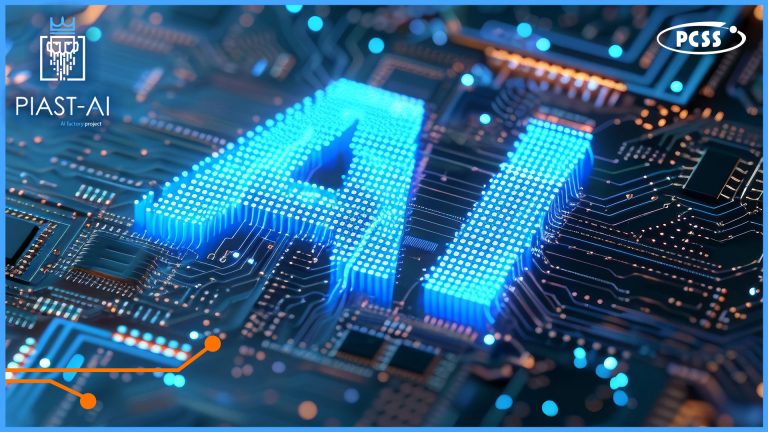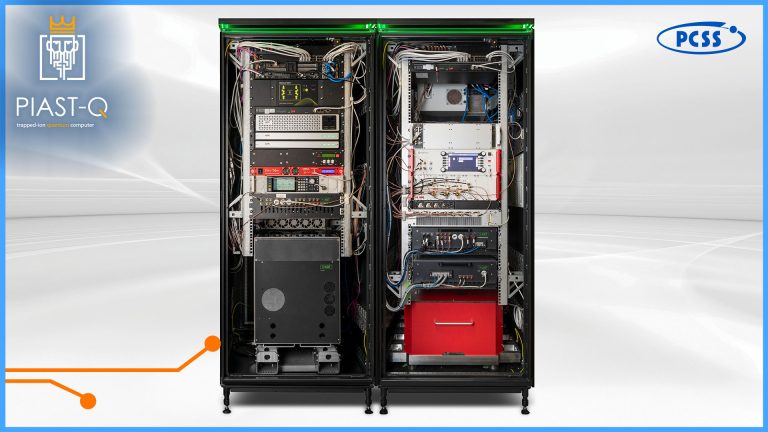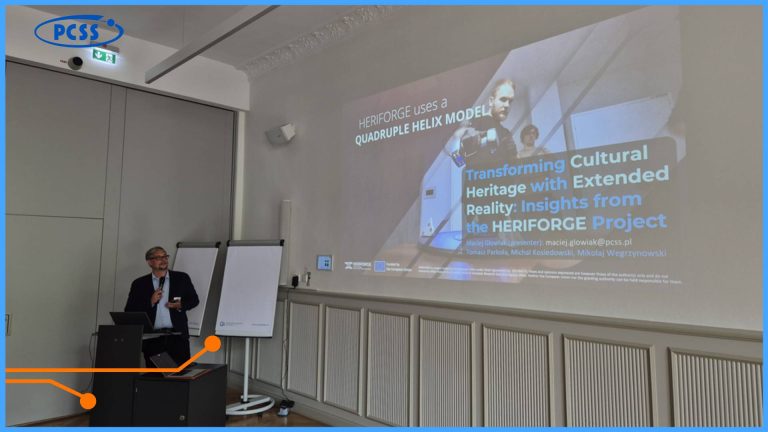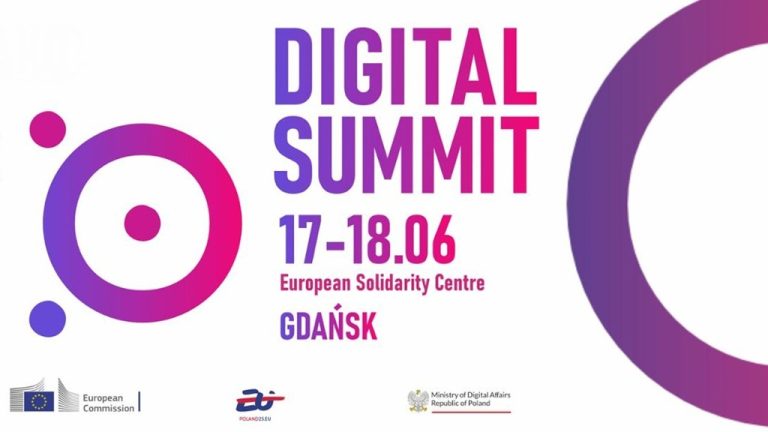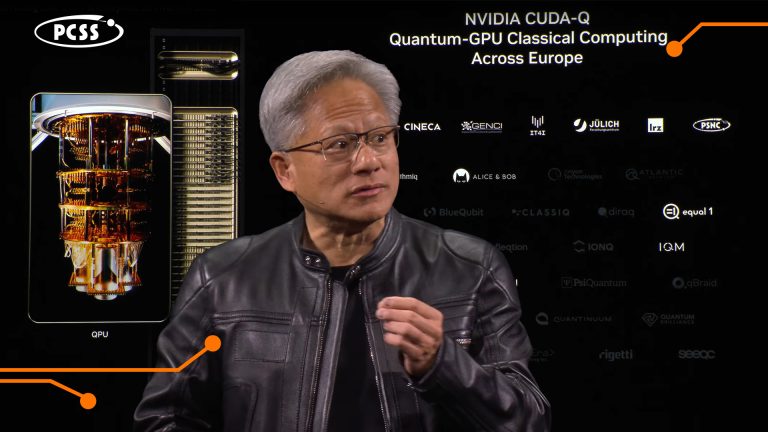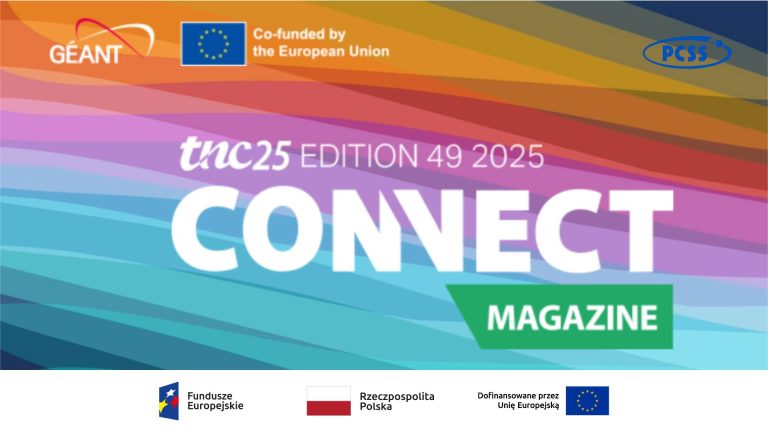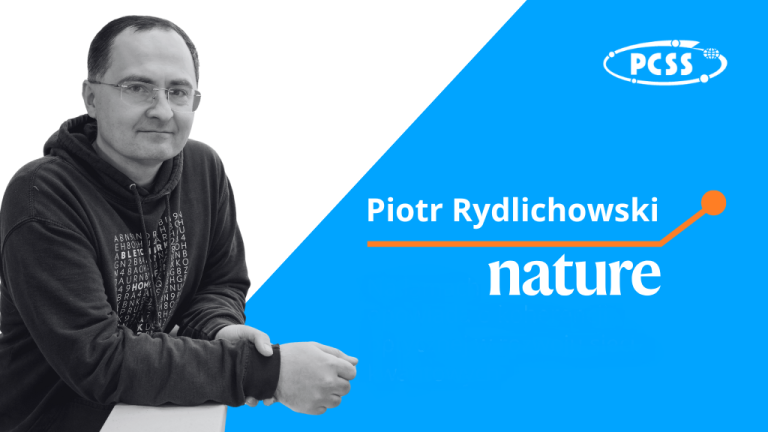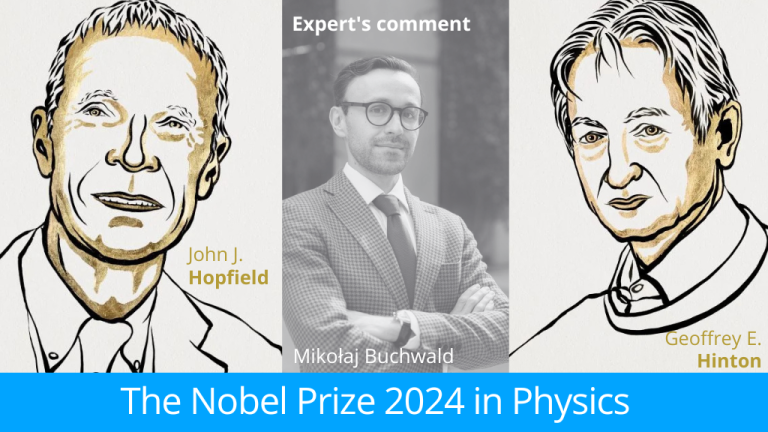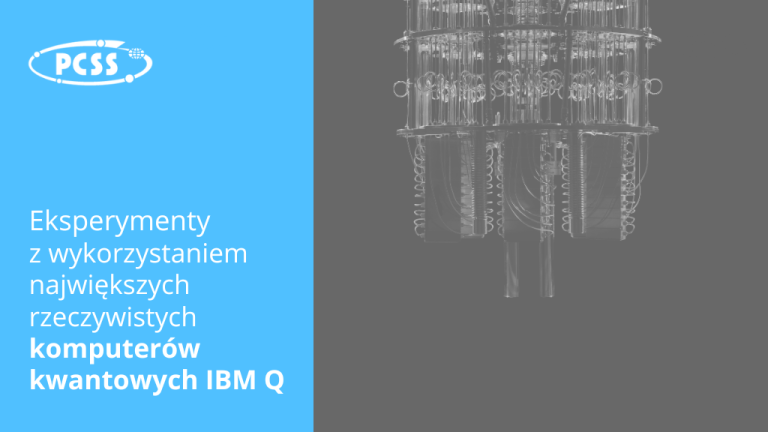Today, under the Polish Presidency of the Council of the European Union, EuroHPC JU inaugurated PIAST-Q in Poznań (Poland). This first inauguration of a EuroHPC quantum computer marks a milestone in building a European quantum computing infrastructure. This is also the first EuroHPC infrastructure located in Poland.
The inauguration ceremony was hosted by the Poznańskie Centrum Superkomputerowo-Sieciowe (PCSS) in Poland. The event was attended by Dariusz Standerski – Secretary of State at Poland’s Ministry of Digital Affairs, Rafal Duczmal – Chair of the EuroHPC JU Governing Board and Anders Jensen – the Executive Director of EuroHPC Joint Undertaking.
Named after the Piast dynasty, the first historical ruling dynasty of Poland, PIAST-Q is a laser-based trapped-ion quantum computer, hosted and operated by PCSS and supplied by AQT in Innsbruck, Austria. PIAST-Q will offer a performance of 20 physical qubits along with several unique features for European users:
- high fidelity universal quantum gates – minimising computational errors,
- long coherence times – providing greater circuit depths, and
- all-to-all qubit connectivity – providing greater stability and enabling programmable multi-qubit quantum gates.
Like all other EuroHPC quantum computers currently under deployment, this system will be integrated with high-performance computing (HPC) infrastructure. PIAST-Q will first be coupled with the ALTAIR supercomputer, and later with the PIAST-AI supercomputer, offering European users access to hybrid classical-quantum architecture.
Although the system’s final calibration will continue over the coming months, the inauguration of PIAST-Q represents the completion of the first operational deployment of a EuroHPC quantum computer, the first in a series. The deployment is remarkable for its rapid implementation: the procurement contract was signed less than a year ago, and the delivery and deployment occurred several months ahead of the timeline planned in the contract.
PIAST-Q is expected to offer compute resources to European end-users by the end of the year, enabling hybrid quantum-classical use cases such as quantum optimisation, chemistry, materials science, and machine learning. Primarily aimed at research and innovation, it will be accessible to a broad range of European users from academia and industry to the public sector.
Anders Jensen, Executive Director of the EuroHPC Joint Undertaking:
– Today’s inauguration of PIAST-Q is a major step in Europe’s leap into the quantum era. This milestone not only marks the deployment of our first EuroHPC quantum computer, but also demonstrates our commitment to building a world-class, sovereign quantum computing ecosystem in Europe. With PIAST-Q, we are not just investing in technology, we are investing in European excellence.
Dariusz Standerski, Polish Secretary of State for Digital Affairs:
– I am grateful to EuroHPC JU and the European Commission for their exemplary cooperation in this project. The new PIAST-Q quantum computer, which meets the highest international standards, supports a wide range of activities, including quantum optimisation, research into quantum materials and quantum machine learning. There are many applications yet to be developed, and the potential of this computer will continue to grow.
Robert Pękal, Director of PCSS:
– The launch of PIAST-Q is another milestone for PCSS, confirming its position as a leading center in the field of advanced technologies. We are proud that the first Polish EuroHPC quantum infrastructure has been created in Poznań, opening up new opportunities for European scientists and industry in the field of quantum and hybrid computing. This achievement also demonstrates our ability to swiftly and efficiently implement innovative projects and highlights the collaboration between Polish scientific institutions and European partners.
Thomas Monz, CEO and Founder at AQT:
– We are honoured and proud to have been selected to install the AQT ion-trap quantum computer at PCSS – highlighting the achievements of our team and the ion-trap platform. We are looking forward to lead the European hybrid integration of quantum computers into high-performance computer centers. Together with our partners in Poland we will pursue novel use-cases to benefit the Polish and European quantum-HPC ecosystem.
dr hab. inż. Krzysztof Kurowski, PIAST-Q and EuroQCS-Poland consortium coordinator
– The inauguration of the PIAST-Q quantum computer installation at PCSS marks a symbolic – yet crucial first step in the EuroQCS-Poland project. This is the beginning of our development and implementation process – the work that is carried out in collaboration with the project’s partners and EuroHPC JU. The goal of these efforts is the full integration of the quantum computer with our supercomputing systems and the PIAST-AI Factory. As a result we will provide users with access to the most advanced state-of-the-art hybrid computing infrastructure – not only at PCSS but also at the other five supercomputing centers in Europe, which are responsible for installations of quantum computers based on various technologies.
Background
Trapped-ion technology uses electromagnetic fields to trap charged atoms (ions) which are then manipulated by high precision lasers to perform quantum operations, providing long coherence times. PIAST-Q is characterised by its innovative and proven architecture, as well as its modularity, and expandability. Developed and validated in collaboration with the University of Innsbruck as well as across an extensive customer base, the system fits into two 19-inch racks commonly used in data centres. PIAST-Q will operate at room temperature and consume less than two kilowatts of electrical power eliminating the need for special cooling, water, or extensive energy infrastructure.
PIAST-Q is co-funded with a total acquisition cost of EUR 12.28 million. The EuroHPC JU funds 50% of the costs and the remaining 50% is funded by the Ministry of Digital Affairs and Ministry of Science and Higher Education. PCSS leads the EuroQCS-Poland consortium, which consists of two additional Polish partners, the Center for Theoretical Physics Polish Academy of Science and Creotech Instruments S.A, and one academic partner from Latvia, the University of Latvia.
The EuroHPC JU has procured eight quantum computers, located across Europe and PIAST-Q is the first of these systems to be inaugurated. The deployment of these quantum computers across Europe aims to provide European end-users with a diverse and complementary portfolio of quantum computing modalities currently spanning six different technologies including analogue quantum simulators based on neutral atoms, trapped ions, superconducting circuits, and photonics to adiabatic systems, enabling the execution of annealing routines. This approach is positioning Europe at the forefront of this emerging field.
About EuroHPC JU
The EuroHPC Joint Undertaking (EuroHPC JU) is a legal and funding entity created in 2018 to enable the European Union and EuroHPC participating countries to coordinate their efforts and pool their resources with the objective of making Europe a world leader in supercomputing.
In order to equip Europe with a world-leading supercomputing infrastructure, the EuroHPC JU has already procured ten supercomputers, located across Europe. Three of these EuroHPC supercomputers are now ranked among the world’s top 10 most powerful supercomputers: Jupiter in Germany ranks at 4, becoming Europe’s new fastest Supercomputer along with LUMI in Finland (9th place), Leonardo in Italy (10th place).
European scientists and users from the public sector and industry can benefit from EuroHPC supercomputers via the EuroHPC Access Calls no matter where in Europe they are located, to advance science and support the development of a wide range of applications with industrial, scientific and societal relevance for Europe.
Currently, the EuroHPC JU is also overseeing the implementation of 13 AI factories across Europe that offer free, customised support to SMEs and startups. One of these new AI factories, the PIAST-AI factory is managed by PCSS and today also marks its official kick-off ceremony. These comprehensive open AI ecosystems centred around EuroHPC supercomputing facilities are supporting the growth of a highly competitive and innovative AI ecosystem in Europe.
In parallel, the EuroHPC JU is investing in research and innovation projects to develop a full European supercomputing supply chain: from processors and software to applications to be run on these supercomputers and know-how to develop strong European HPC expertise.
About PCSS
PCSS has been involved in the construction of e-infrastructures for science and the development of advanced information and communication technologies and their wide range of applications for digital science, economy, and society in Poland over the past three decades. PCSS develops a broad spectrum of activities such as cybersecurity and data protection, education of the future or energy efficiency, with a current strong emphasis on High Performance Computing (HPC), Quantum Technologies, and Artificial Intelligence.
PCSS participates in numerous European initiatives and projects in this field – so far it has implemented over 270 EU projects. Having a state-of-the-art National Research and Educational fiber-optic PIONIER network, PCSS combines the research potential of Polish scientific environment with access to European scientific instruments and institutions, and provides access to the GÉANT network.
About AQT – Alpine Quantum Technologies GMBH
Building on decades of experience in experimental and theoretical quantum information processing, AQT develops and builds quantum computers. The company’s goal is to offer ion trap-based quantum computers that fit seamlessly into conventional IT infrastructure and can be operated from any PC or laptop, regardless of location. AQT already enables its customers to install quantum computers on site or to use them via a convenient cloud solution. AQT supports research customers with quantum hardware components and complete solutions that significantly accelerate the development of quantum optics experiments. For more information about AQT, please visit: www.aqt.eu.
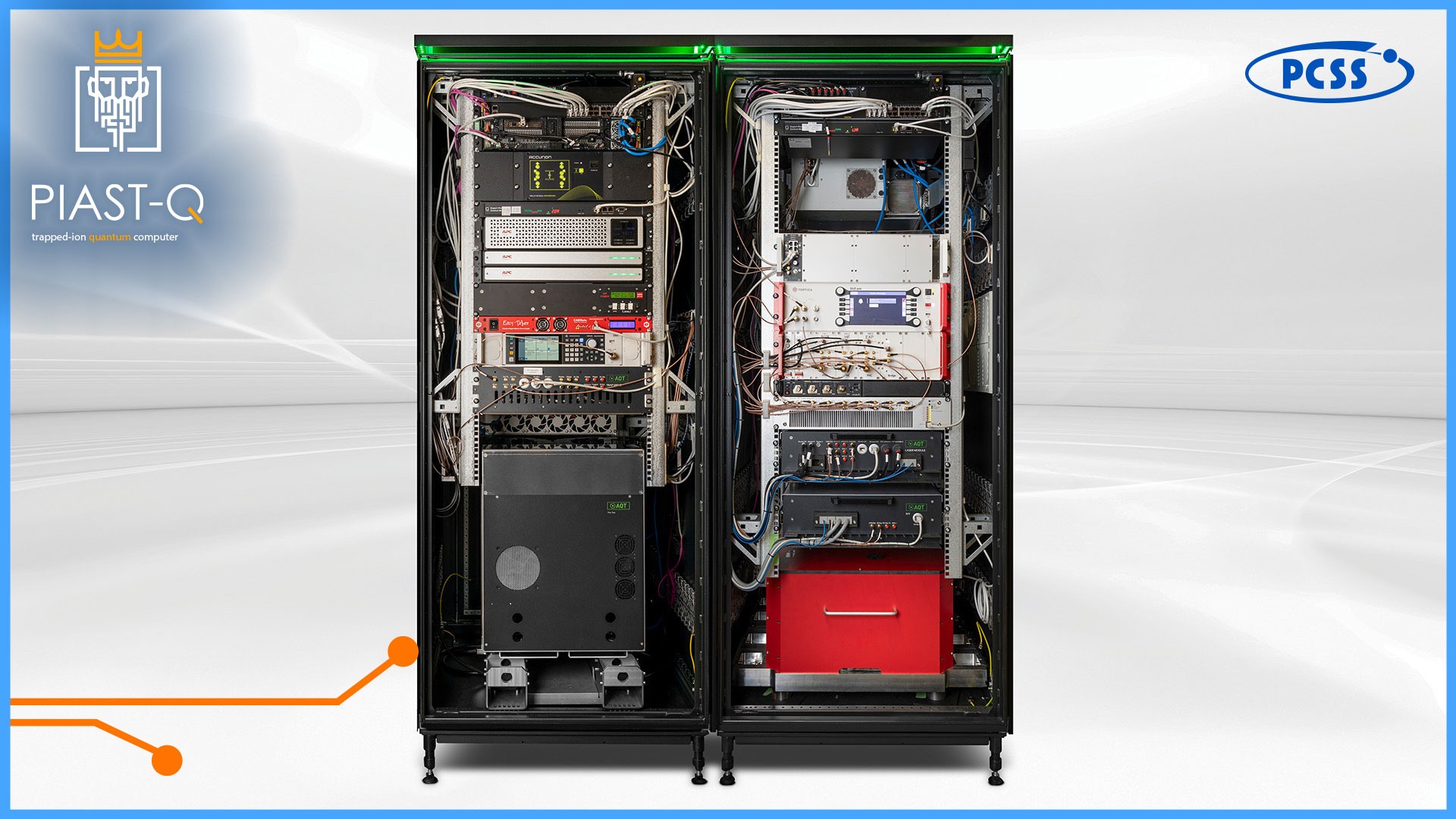
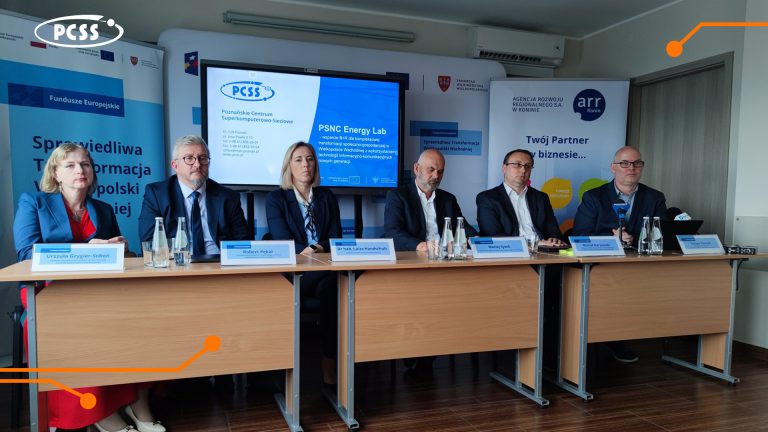
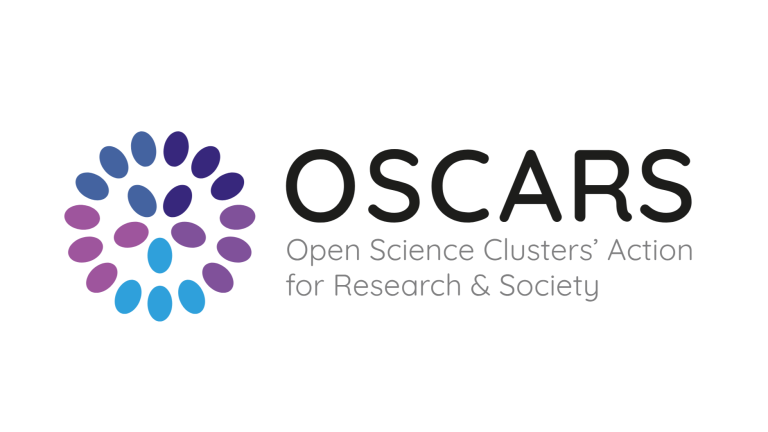

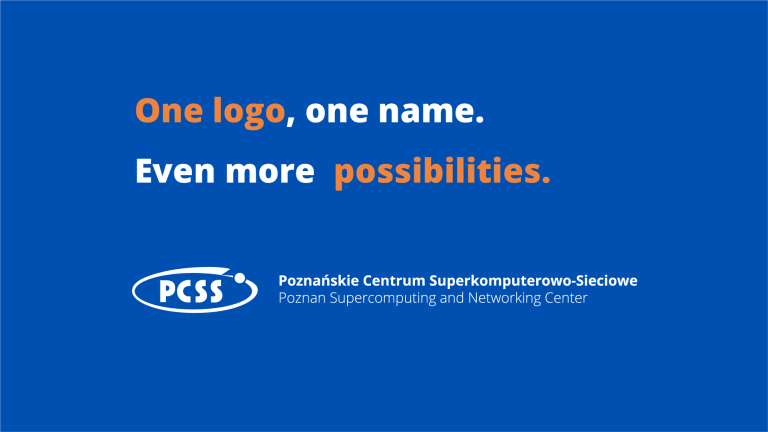
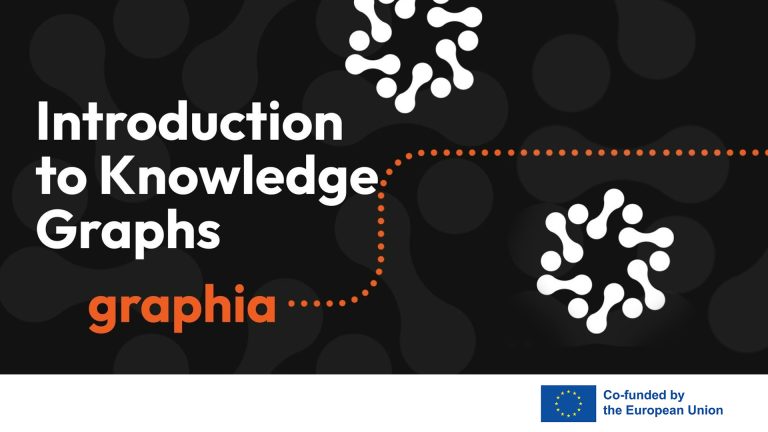
![The image displays the word "LUMEN" in a stylized, outlined font, with different letters connected by lines and arrows to various academic disciplines. The letters "L" and "U" on the left are linked to "Mathematics [Maths]" and "Social Sciences and Humanities [SSH]," while the letters "M," "E," and "N" on the right are associated with "Earth System Science [ESS]" and "Molecular Dynamics [MD]." The overall design suggests an interconnectedness of these fields, potentially illustrating the interdisciplinary nature of something represented by "LUMEN".](https://www.psnc.pl/files/2025/05/lumen2_EN-768x432.jpg)
